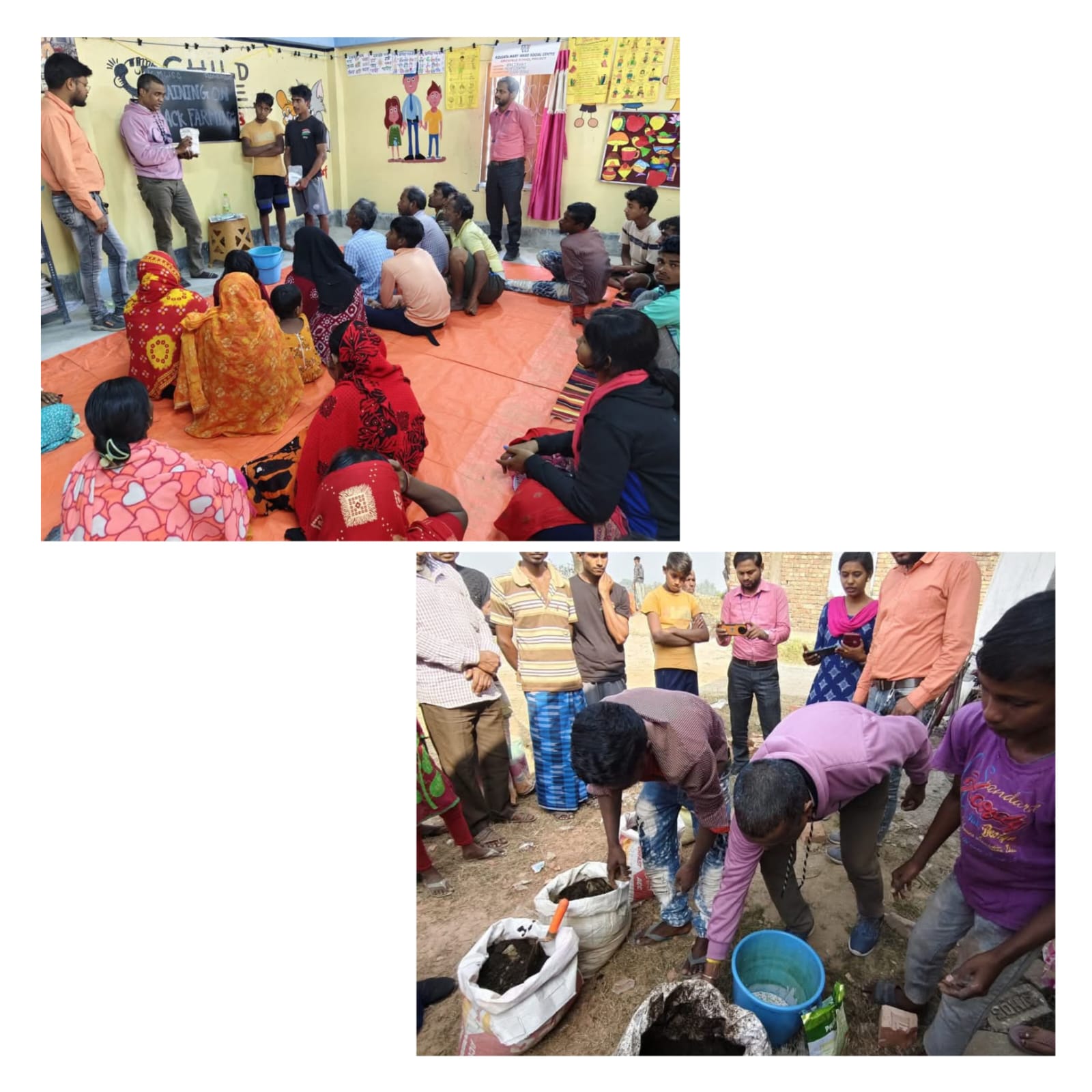
On 17th January 2025, Kolkata Mary Ward Social Centre (KMWSC) conducted a Capacity Building Training on Organic Sack Farming for migrant families engaged as labourers in the brickfields of Basirhat. This initiative aimed to equip them with the necessary knowledge and practical skills to cultivate fresh, organic vegetables using innovative sack farming techniques — a sustainable method ideal for small spaces and temporary settlements. The training covered both theoretical and hands-on practical sessions, ensuring participants could effectively implement sack farming in their living environments. An agricultural expert guided them through the process of soil preparation, seed selection, water management, and organic pest control techniques. Participants also engaged in live demonstrations, learning step-by-step how to set up and maintain their own sack farms. A total of seven brickfields were represented in the training, with enthusiastic participation from both men and women eager to adopt this practice. The initiative holds immense significance for migrant families, as it provides them with an accessible and sustainable way to grow their own nutritious food during their seasonal stay at the brickfields, improving their dietary intake and overall well-being. Beyond immediate food benefits, sack farming empowers migrant families with agricultural skills they can take back to their native villages, opening avenues for alternative livelihoods beyond brickfield labour. This initiative not only enhances food security but also fosters self-reliance and environmental sustainability, as sack farming requires minimal resources, yet offers a high yield of fresh produce. The session concluded on an uplifting and positive note, with participants expressing gratitude and enthusiasm to apply their newfound knowledge. Many shared their eagerness to implement sack farming in their settlements and even introduce the method to fellow workers. Through such initiatives, KMWSC continues to empower marginalised communities, ensuring that even in transient living conditions, families have access to home-grown, nutritious food and the skills for a more secure future.
